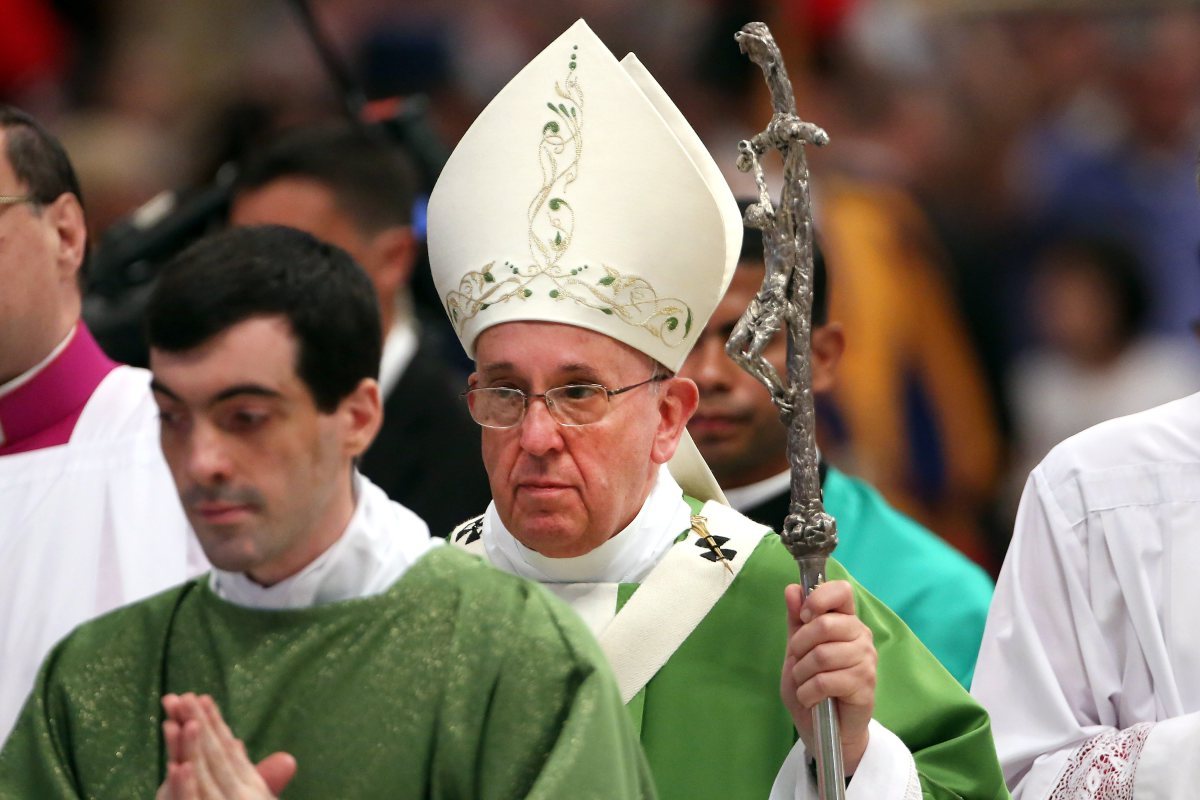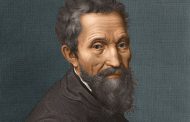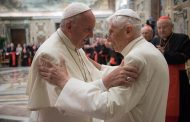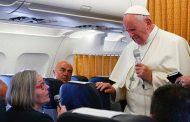Pope Francis attends the Opening Mass of the Synod of Bishops in St. Peter’s Basilica on Oct. 5, 2014 in Vatican City.Franco Origlia—Getty Images
It can be easy to fixate on the idea that the Extraordinary Synod on the Family beginning in Rome this week is purely about Catholic Church politics. The world clamors for the latest Catholic hubbub about divorce and remarriage policies, annulment reform, and which Cardinal holds which position on what agenda or controversial marital issue. But something more is happening as bishops gather for the first major doctrinal and pastoral summit of the Francis papacy; something quieter, deeper, and less immediately obvious: a spiritual renewal that Pope Francis hopes to foster between church leaders and their people.
This spiritual undercurrent, although quiet, has been powerfully present in the Holy Father’s actions this weekend. On Saturday evening, before the synod officially began and as a pink sun set behind St. Peter’s Basilica, Pope Francis called the people to gather in the piazza to pray for the upcoming two-weeks of Synod conversations. A choir chanted a hymn as tens of thousands of people arrived, each silently, most with their families. When dusk fell and the moon had risen, each person lit a candle, and thousands of drops of light filled the square. Vieni Santo Spirito, vieni, or Come Holy Spirit, come,the people sang with the choir, over and over. “May the Wind of Pentecost blow upon the Synod’s work, on the Church, and on all of humanity,” Francis told to the crowd. “Undo the knots which prevent people from encountering one another, heal the wounds that bleed, rekindle hope.”
This prayer service was more testimony to the conviction that any real change in the Church must start with prayer—and a reminder of the people themselves. They, these people, these families, are the reason Francis called this Extraordinary Synod in the first place. It is only the third such special meeting a Pope has called since the Synod of the Bishops was created in 1965. The crowd was so vast that Francis himself most surely could not see the details—the children playing with their candles and dripping wax in patterns on the pavers, mothers comforting crying babies, a son helping a grandmother to a chair, the teenage couple taking selfies—but these are the people who experience the issues of family and marriage in ways clergy, who are celibate, rarely do. He was telling the people that they were foremost on his mind as the Synod began.
Francis was also reminding the bishops that the people were foremost on his mind. Most of the church leaders present Saturday evening had just arrived in Rome after having prepared for the Synod for a year, surveying their own congregations about modern family life for their peers’ review these coming weeks. Now, Francis stood before them and the first thing he did was to gather them to encounter the people and their sparks of light. Only when the service ended did he turn to greet the cardinals, one by one. The liturgical message about his priorities, and their priorities in turn, was hard to miss.
If the Holy Father’s Saturday prayer service was about the people, his Sunday mass turned to the bishops. Inside St. Peter’s Basilica, standing beneath Michelangelo’s dome and above St. Peter’s tomb, the Holy Father gave a pointed homily about the bishops’ role. The job of leaders, he preached, is to nurture the vineyard—a Biblical image for the people of God. “Synod Assemblies are not meant to discuss beautiful and clever ideas, or to see who is more intelligent,” he preached. “We are all sinners and can also be tempted to ‘take over’ the vineyard, because of that greed which is always present in us human beings. God’s dream always clashes with the hypocrisy of some of his servants. We can ‘thwart’ God’s dream if we fail to let ourselves be guided by the Holy Spirit.”
His meaning was clear. This meeting is not a time for the bishops to each shine with their own debates, Francis was saying, but rather a time to focus on the people and what the people need. It is, as he put it, about developing “plans [that] will correspond to God’s dream: to form a holy people who are his own and produce the fruits of the kingdom of God.”
The next two weeks will be telling. Francis is presiding over the world’s last truly medieval court, which can at times appear to revert to high school drama and power plays. But the spiritual moments that have shaped the Synod’s start are a concrete reminder that Francis the pastor is the one calling the shots. He’s the one walking the incense around the papal altar at mass, he’s the one celebrating Eucharist, and he’s the one determining where the ultimate emphasis is placed. He is the one in St. Peter’s seat. The bishops are there at his request. It’s the tone he sets that matters.





